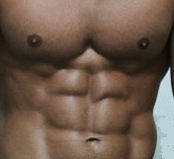There are so many HGH myths out there. Just recently, there was yet another doping scandal in an Orlando, Florida pharmacy. According to a report from Sports Illustrated reporters, the federal and state agents busted up a huge illegal performance enhancing drug distribution network. And while there’s been all this PR about this “steroid sting,” there’s really been no real evidence of steroids at all. What there was is human growth hormone and that’s caused a great deal of controversy over the sensationalism.
It seems HGH has become very popular in the athletic world. In fact, many say it is replacing anabolic steroids becoming the latest trend. Many big name athletes have been named for using HGH – Jerry Hairston Jr, Gary Mathews Jr, Evander Holyfield, Tiger Woods, and not so long ago Sylvester Stallone was charged with the importation of 48 vials of HGH into Australia.
Part of the problem with the misunderstandings associated with HGH can be blamed on the media who really hasn’t taken any time to distinguish the difference between steroids and HGH. Instead, there’s a wave of sensationalism that is leading to huge misunderstandings about HGH. It’s terribly wrong to group HGH with steroids.
So what’s the difference between HGH and steroids? We know that steroids can enhance an athlete’s performance significantly. However, most clinical studies indicate that HGH does not have the same effect. HGH will help to reduce fat and increase lean muscle mass but it doesn’t actually increase performance. Steroids also have awful side effects such as an increased risk of stroke and testicular shrinkage, where as taking HGH really has no horrible side effects.
If HGH isn’t helping athletic performance, why are they bothering to take it? And if it isn’t hurting anyone why does the league care. In 1990, The New England Journal published a research paper by Daniel Rudman from the Medical College of Wisconsin. 12 men over the age of 60 were given HGH for 6 months and the end result was thicker skin, denser bones, leaner body mass, and less fat. The paper said it reversed age by 10-20 years.
When you are healthy, you will naturally produce HGH throughout your lifespan with the highest amounts during adolescence and depletion already beginning in your late 20s. In 1996, the FDA gave HGH the approval as a growth hormone replacement therapy for adults who are suffering from reduced HGH secretion with levels that are below normal.
Since then there has been a great deal of misinformation printed. Journalists have written articles making outlandish claims about what HGH can do. For example, in 2003 the Outside wrote an article that said HGH not only improved eyesight but also made a scar disappear completely from the writers forehead. Then in January, a GQ reporter said that it deepened his voice, filled him with a youthful radiance, and even had the ability to renew his internet pornography interest. Remember people believe what they read.
Clinical researchers have been a lot less enthusiastic about what it is HGH can do. You don’t have to have a scientific mind to recognize that there are real flaws in the Rudman study, although more current studies are still producing the same results or similar results. There seems to be no question that HGH has the ability to increase lean muscle mass and decrease body fat. It might not increase longevity but it will certainly have you looking great.
So while HGH might increase lean muscle mass and decrease body fat that does not equate to enhanced athletic performance. Growth hormone will not increase your weight lifting ability, because it does not increase your strength like anabolic steroids would. It affects muscle definition not muscle strength. It also doesn’t seem to have much effect on cardio fitness.
So why then do athletes us HGH? Well some might say it’s because of its ability to enhance performance but by now you should recognize that the subtle performance improvement is too nominal to even measure. An elite athlete might detect a minute change but it would be so small that scientists would not even be able to detect. Perhaps at the elitists of athletes that minute improvement might make a difference. There perhaps might be some additional benefits when HGH is mixed with other drugs.
Then again, truth be known, perhaps athletes aren’t using HGH to beef up – perhaps that’s not their intention at all. Their focus is much more likely on overall leaner body mass and reduction of fat, or they could be recovering from an injury, because HGH is known to speed up tissue repair.
There is a great deal of misinformation floating around about HGH, which just goes to show you should not always believe what you read. Always do your own homework and make your own decisions based on the information you find.











